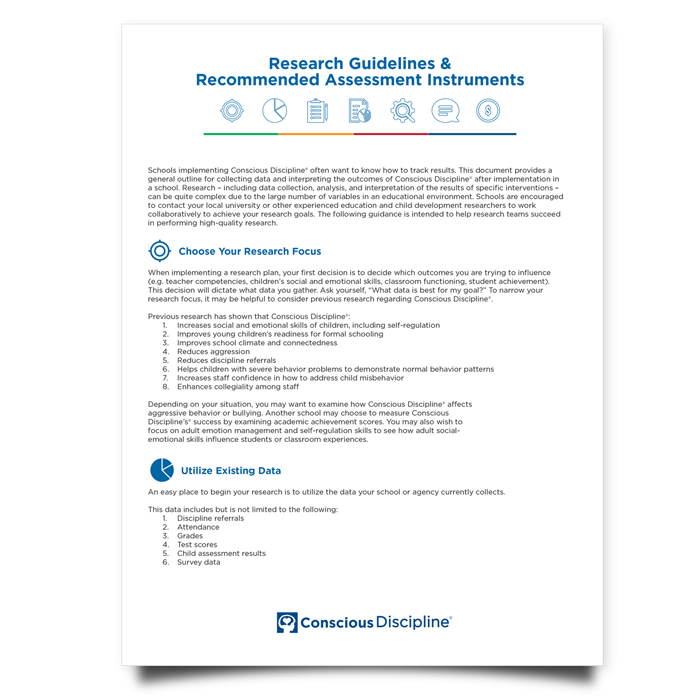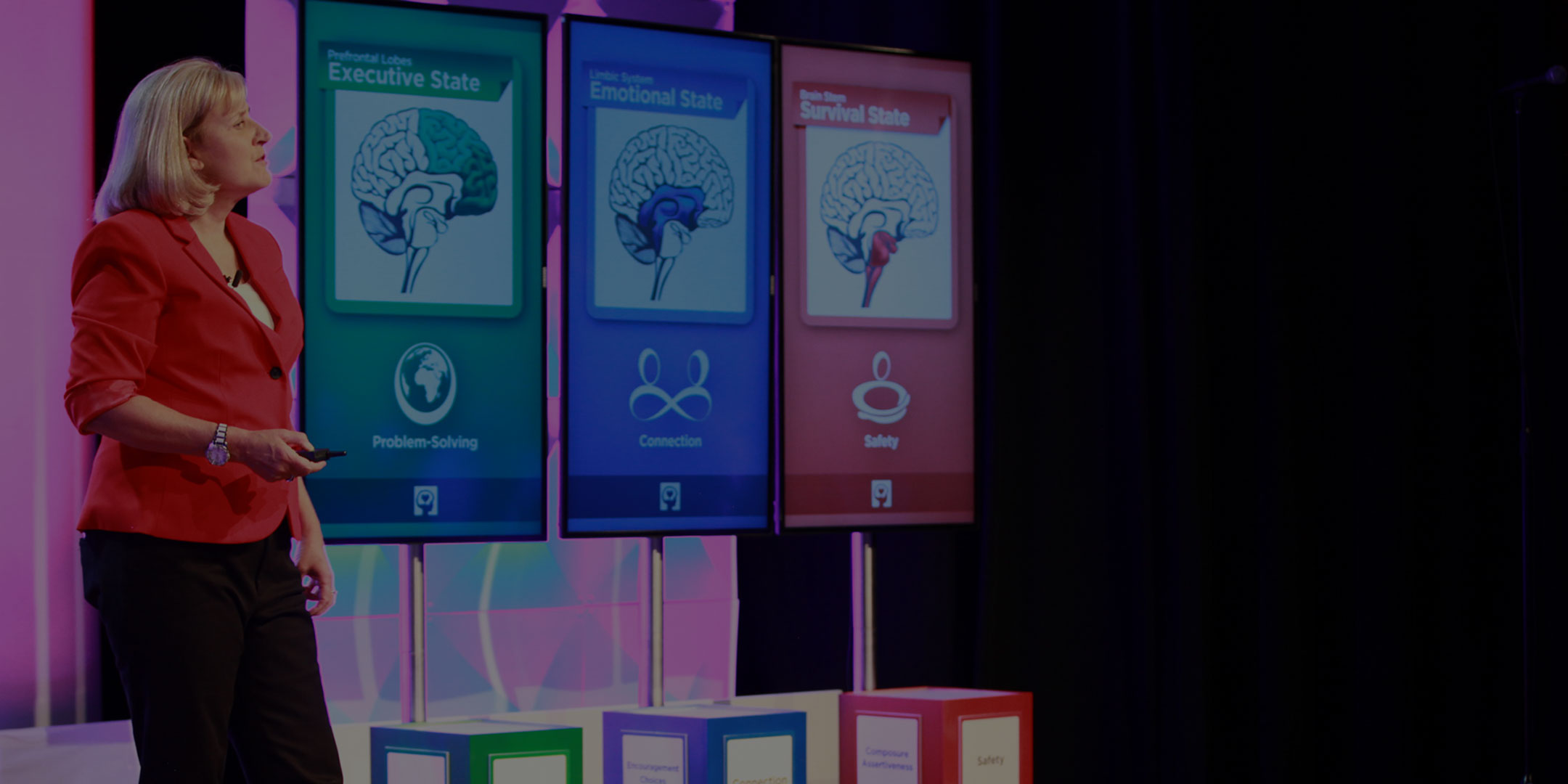Research Guidance
Our helpful, downloadable guide is helpful as you define research focus, use of existing data, integration of surveys and other tools and more.
Learn MoreData Collection
A quick reference of valid and reliable instruments to assess social and emotional skills, staff implementation and program outcomes.
Learn MoreCD + e-Deca
Learn more about the complete toolset included with the Conscious Discipline and e-DECA Assessment Planning System.
Learn MoreDoing Research?
We would love to connect with you. Complete a short research query to share your areas of focus and outcomes of your work.
Learn More
Research Guidance
Research and interpretation of the outcomes and impact of specific interventions can be quite complex due to the large number of variables (i.e. things that change regularly) in an educational environment. You may want to contact your local university or other experienced research partner to work collaboratively to achieve your research goals.
To aid in your planning, the downloadable guide below describes:
- How to focus your research, utilize existing data and use surveys
- Information about research design options and best practices (e.g. pre- and postintervention, with or without comparison and control groups)
- Information about using instruments like those presented below
- Suggestions for how to use qualitative or anecdotal information
- Options for funding your research

Instruments to Measure SEL Skill Development and School Climate
The downloadable file below lists various valid and reliable instruments that programs and researchers may use for research. These tools assess children’s social and emotional skills, staff implementation of Conscious Discipline, and program outcomes across the age span. Different types of instruments are available including: observational child assessments; assessments which are checklists completed by teachers or parents; and classroom or program observational tools. Read the descriptions and go to developers’ website to learn more and select which is right for your needs. Please note that Conscious Discipline does not sell any of these instruments.

Reflection Sciences Executive Function Assessment
The MEFS App is a research-reliable, valid and game-based assessment of EF skills in children as young as two-years old. EF skills are the mental processes that enable us to plan, focus attention, remember instructions, inhibit impulses and manage multiple tasks successfully. These skills are the foundation to SEL success. After using the MEFS App to learn where each child is on the EF scale, educators receive customized, Conscious Discipline-based interventions for each child, making planning time more efficient. This training course and the app-based assessment help maximize classroom time and instructional strategies. Use data to monitor progress, track the development of EF and evaluate the effects of interventions and curricula.

e-DECA Assessment & Planning System
The DECA is a standardized behavior rating scale that measures the characteristics (attachment, self-control, initiative and behavioral concerns) of resilient children.
Each time a rating is administered on the e-DECA database, the rating will be scored and saved on the system. Once the rating is scored and saved, the program staff can select strategies to help build children’s protective factors and reduce behavioral concerns. In order to purchase a sufficient quantity of ratings, programs should consider how many children will be rated throughout the course of the year by different adults. For example, if a program has 100 children and both teachers and parents will be rating the child one time, then the program would purchase 200 ratings.




